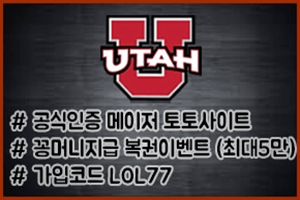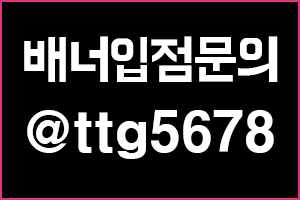롤 토토 롤 배팅 BJ 추천 사이트 소개
가장 안전한 E-SPORTS 롤 토토 및 롤 배팅이 가능한 BJ 배팅 사이트를 추천 합니다.
신규 가입 유저만 누릴 수 있는 특별한 이벤트 혜택도 놓치지 말고 즐겨 보세요!

롤 토토 (LOL TOTO) 뜻
롤 토토는 “리그오브레전드” 게임과 스포츠 배팅을 결합한 개념으로, 대한민국에서 가장 인기 있는 PC게임인 “LOL(League Of Legend)”과 스포츠 배팅을 뜻하는 “토토”의 합성어입니다.
“리그오브레전드”는 MOBA 장르의 게임으로, 5명의 플레이어가 한 팀을 이루어 서로의 실력을 겨루는 게임입니다.
포지션을 선택하고, 아이템 빌드를 완성하며 맵에서 서로의 넥서스를 먼저 파괴하면 이기는 게임으로 약 150명의 챔피언이 있습니다.

Why Choose Us?
Discover our unique value proposition that sets us apart in the world of League of Legends betting.

롤토토 하는 방법 (How to do LOL TOTO)
롤토토는 정해진 “리그오브레전드” 경기에 배팅하는 것으로 이루어집니다. 크게 세 가지 리그로 구분됩니다.
1. 롤 LCK 리그
롤 LCK 리그는 2012년에 한국에서 최초로 열린 리그오브레전드 지역 리그입니다.
“LCK”는 리그오브레전드 챔피언스 코리아의 약자로, 국내에서 가장 주목받는 메이저 리그 중 하나입니다.
롤 LCK 리그에는 다른 경기보다 큰 배팅이 이루어집니다.
2. 롤 MSI 리그
롤 MSI 리그는 라이엇 게임즈가 주최하는 연례 국제 리그 오브 레전드 토너먼트입니다.
일반적으로 다양한 지역 리그의 봄과 여름 시즌 사이에 개최되며, 다양한 지역의 최고 팀 간의 중간 대결 역할을 합니다.
국제 리그이므로 해외에서도 롤 배팅 토토가 활발히 이루어집니다.
3. 롤 BJ토토
롤 BJ토토는 롤 방송을 하는 BJ들의 경기에 토토 배팅을 하는 것입니다.
이는 연중무휴로 이루어지며, 언제나 롤토토를 즐길 수 있습니다.
다만 개인 방송인 만큼 규모가 작은 것이 단점으로 작용할 수 있습니다.

롤 BJ토토 (LOL BJ TOTO)
1. 롤 BJ토토란 (What is LOL BJ Toto?)
롤 BJ토토는 롤 방송을 하는 BJ들의 경기에 토토 배팅을 하는 것입니다.
이는 연중무휴로 이루어지며, 언제나 롤토토를 즐길 수 있습니다.
다만 개인 방송인 만큼 규모가 작은 것이 단점으로 작용할 수 있습니다.
자세한 내용은 롤토토 게시판 참고
2. 롤 BJ토토의 장점과 단점 (Strengths and Weaknesses of LOL BJ Toto)
롤 BJ토토의 장점과 단점은 다음과 같습니다.
장점 : 방송을 보며 실시간으로 스트리머와 소통을 하며 즐겁게 배팅을 하여 공감대를 형성 할 수 있습니다.
이는 사람들의 공감체 형성에 도움이 됩니다.
단점 : 롤 배팅의 실패로 경제적으로 금전적인 피해를 받게 될 수도 있습니다. 그래서 항상 자신의 자금을 체크하여 부담되지 않는 수준으로 진행을 해야 합니다.

롤 배팅 (LOL Betting)
1. 롤 배팅이란? (What is 롤 배팅?)
롤배팅이란 롤(리그 오브 레전드)의 경기에 토토, 즉 배팅을 하는것을 의미합니다.
배팅을 참여함으로써 롤경기를 보다 재미있게 볼 수 있는 장점이 있습니다.
또한 승리시 배팅금액의 배율만큼의 수익이 따르며, 팬심이 더욱 커지게 됩니다.
2. 롤 배팅하는 방법 (How to do 롤 배팅)
메이저 경기는 국내외 합법 및 사설 토토사이트에서 배팅이 가능합니다.
합법사이트의 경우 롤배팅의 금액제한 및 배율이 낮고, 사설 사이트는 배팅의 금액 및 배율이 높은편입니다.
롤BJ토토에 배팅을 하는 경우는 합법토토사이트에서는 불가능하며, 사설 사이트중에서도 특정 업체에서만 롤bj토토 배팅이 가능합니다.
특정 사설업체를 통해서만 배팅이 가능하므로 업체선정시 유의가 필요합니다.
롤 배팅하는 방법 자세히 알아보기

롤 토토
1. 롤드컵토토(국제 롤 챔피언스 리그)
롤드컵은 롤토토에서 가장 큰 리그입니다.
이는 스포츠계의 “월드컵”과 같은 맥락의 글로벌 챔피언십 리그로, 전 세계의 게이머들이 열광하는 국제 대회입니다.
가장 큰 국제 대회인 만큼 세계적으로 큰 인기를 끌며, 대부분의 롤토토사이트에서 롤배팅이 가능합니다.
2. 롤(LOL LCK토토)한국 지역 리그
롤(LOL LCK토토)는 한국 지역에서 개최되는 국내 리그입니다.
롤은 국내점유율 1위인 게임으로, 한국에서 가장 많은 사람들이 즐기는 게임인 만큼 국내리그에 대한 관심도 높습니다.
따라서 대부분의 롤토토사이트에서 롤 배팅이 가능합니다.
3. 롤(LOL MSI토토) 국제 토너먼트 리그
롤(LOL MSI토토)는 국제 토너먼트 대회인 미드 시즌 인비테이셔널(MSI)의 일환으로 진행됩니다.
이 대회는 국제적으로 큰 주목을 받으며, 규모 또한 상당히 큽니다.
4. 롤(LOL) BJ토토
롤(LOL) BJ토토는 BJ가 리그 오브 레전드를 스트리밍하는 BJ의 개인 방송 경기에 배팅하는 서비스입니다.
규모는 작지만, 24시간 이용 가능하여 지속적으로 배팅이 가능한것이 장점입니다.
Start LOL TOTO Winning Today
롤 배팅의 흥미진진한 세계에 몰입하고, 압도적인 즐거움과 보상을 저희 롤토토 홈페이지에서 경험해보세요.


